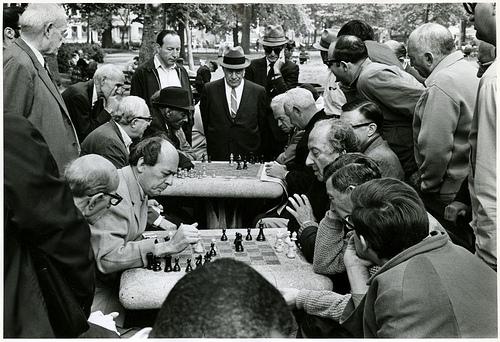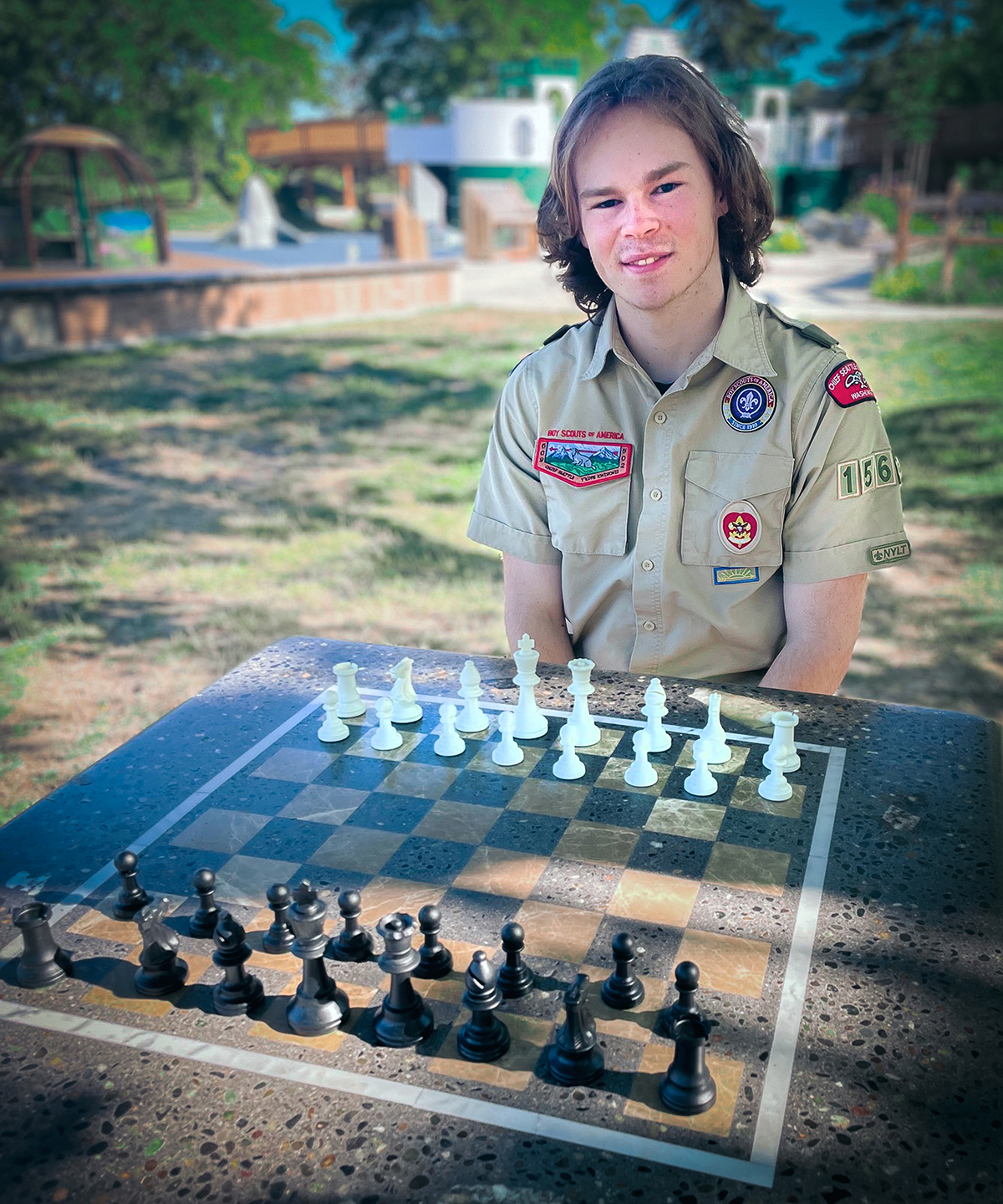Concrete chess tables aren’t just a place to play they are a public park powerhouse. Whether tucked into a busy city plaza or shaded by trees in a quiet neighborhood green, these durable, all-weather game tables turn empty corners into lively gathering spots. For placemakers and park planners, adding chess to the mix means building intergenerational fun, encouraging cultural exchange, and sparking the kind of casual interactions that make public spaces feel alive.
There’s something magnetic about chess tables in a public park.
Maybe it’s the clack of pieces hitting the board, the quick, deliberate handshakes, or the way strangers lean in over 64 squares as if they’ve known each other for years. Whatever it is, it pulls people together quietly, yet powerfully.
From Street Hustle to Global Stage – Washington Square Park

The history of chess in the parks has been well documented and includes several movies as well as thousands of cameo appearances in T.V. and Movies.
Today, these players are the inheritors of a tradition stretching back to the 1940s, when NYC began adding chess tables to its parks. But it was the late ’60s and early ’70s that made the scene famous — and sometimes infamous. The great Bobby Fischer played here, along with Stanley Kubrick, Heath Ledger, and countless grandmasters whose names are legend in the chess world.
The “chess hustler” game is usually blitz chess — five minutes, no do-overs, and bragging rights on the line. If you’re lucky, you might find yourself across the table from Russian Paul, Sweet Pea, or JP, all local celebrities in the scene.
Even after a redesign, “Chess Plaza” still has its cinematic charm, appearing in Searching for Bobby Fischer and Fresh. It’s a place where tourists and masters alike come to battle — and sometimes to learn.
Small Town, Big Moves – Medford, MA
Public chess isn’t just an urban phenomenon. In Medford, Massachusetts, Chris Donovan — part historian, part chess enthusiast — saw new chessboard tables appear in Riverside Park and decided to make something of it.
With a little Facebook organizing, local sponsorships, and a dose of civic persuasion, Donovan helped create “Chess on the Plaza,” a weekly meet-up where beginners and experts mingle over games. The city pitched in for cement chess tables, umbrellas for shade, and even sprinklers to keep the lawn lush.
“Age differences, cultural differences, communication gaps — all disappear over a chess board,” Donovan says. And it’s true. One week he played a traveler from Morocco who’d just stepped off a plane. Other weeks, he’s teaching kids their first moves.
In Medford, chess has become more than a pastime — it’s a placemaking strategy. It brings people into the park, fuels nearby businesses, and gives residents a reason to linger.
An Eagle Scout’s Lasting Legacy – Bainbridge Island, WA

Ben Watson doesn’t play chess. But thanks to his Eagle Scout project, a whole lot of other people do — right next to the KidsUp! Playground in Battle Point Park.
With help from the Bainbridge Island Parks & Trails Foundation and the Park District staff, Watson built a permanent concrete chess table with a marble inlay board, shaded by a towering black oak.
It’s as much a social space as it is a game table. Parents use it for picnics between playground sessions. Friends meet there for casual games. And it will still be there decades from now, a quiet reminder that sometimes the smallest civic amenities — a place to sit, play, and connect — can outlast playgrounds, splash pads, and trendy park features.
Why Chess Tables Work for Parks
Placemakers often talk about “sticky” park features — things that make people stop, linger, and come back. Chess tables are about as sticky as it gets. They work because they’re:
- Intergenerational: Kids, teens, and seniors can all play together.
- Low-cost: One table can serve thousands of games over decades.
- Visually magnetic: A crowd watching a game draws more players.
- Culturally universal: Chess is a shared language around the world.
Whether it’s New York City hustlers, a New England plaza, or a shaded spot on a Pacific Northwest island, public chess is part of what makes parks hum with life.
So next time you pass a park chess table, stop. Watch a game. Sit down if you’re feeling brave. Because the beauty of public chess is that it’s not just about winning — it’s about playing together.
You can explore the complete overview of Stone Age’s outdoor games to see what fits your space.